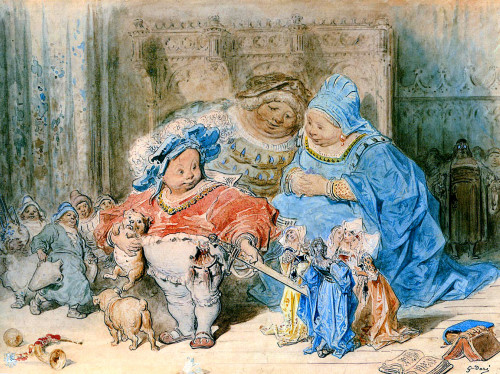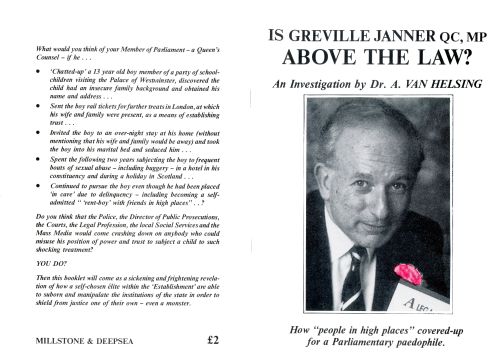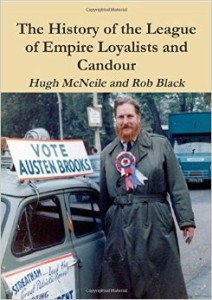
‘Pantagruel with his father Gargantua and mother Gargamelle” (watercolor); by Gustave Doré (1832–1883)
Translated from the French by Tom Sunic.
Below is the interview Alain de Benoist gave recently to Boulevard Voltaire.
******
Q: “Eat your five servings of fruit and vegetables every day!”; “Do some sport!”; “Quit Smoking!”; “Drink one glass, but not two!”; “Buckle up when driving!”; “Do not eat too much fat!”; “Do the proper garbage recycling!” After Big Brother, have we now arrived at Big Mother?
A: Starting with the nineteenth century the welfare state has been progressively put in place in order to compensate for the disappearance of organic and community solidarities which, with the rise of individualist ideology, have become dissolved. Today the welfare state it is morphing into a sort of “therapeutic state”— if we were to borrow an expression by Christopher Lasch. This therapeutic state can be defined as an unholy alliance of the medication process and the state, setting up all sorts of unjustified obstructions to our freedom. The authority is becoming more and more maternal, albeit maternal in a way of a possessive mother eager to maintain its subjects in total dependency. The unilateral relationship with the state replaces the ancient social bonds. This hygienic control augurs social control. Medicine itself, when taking part in the control of populations, becomes totalitarian.

Alain de Benoist
The dominant human type of today is the immature narcissist, ignoring all realties other than his own, and who, above all, wishes to satisfy all his cravings. This infantile type of a human being, predictably of liberal-libertarian orientation, is perfectly in line with a system which, as Marx wrote, drowns everything “in the icy waters of egoistic calculation.” What follows is a therapeutic civilization centered on the “Me” only. Pierre Manent rightly stresses that liberalism means primarily renouncing to apprehend human life in terms of its own good and its own finality. In a society ruled by the entertainment industry in which nobody asks himself about the meaning and significance of his presence in the world, body-care of the Self becomes the alpha and omega of human life. Not only does it signify being of good health, but also “feeling good about oneself,” and thus forgetting one’s own finitude. While expecting immortality in this world, the dream of eternal youth grips all those who have never become adults, and who conceive now of their life as a maternal fusion defying any symbolic order, while thriving in a culture of the present tense that has expelled any meaning of historical continuity. Henceforth society functions according to the principles of mimetic rivalry, as a form of “ego rivalry” (in Freudian terms), i.e., with the Self being stripped off of its “id” and its “superego,” convinced now it is the center of the universe. This only facilitates the war of all against all. Read more





 The History of the League of Empire Loyalists and Candour
The History of the League of Empire Loyalists and Candour


